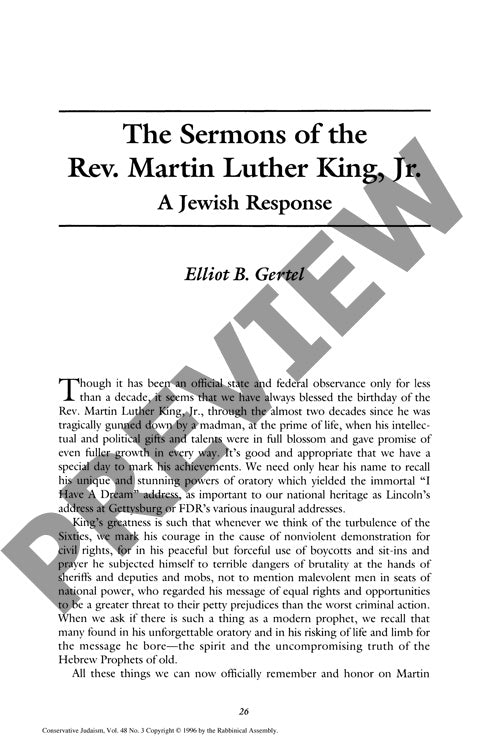The Sermons of the Rev Martin Luther Kin
Couldn't load pickup availability
Martin Luther King Jr.'s sermons reveal a sophisticated theological framework deeply influenced by Jewish thought and philosophy, challenging common perceptions of his work as purely political activism. Through close reading of King's "Strength to Love" collection, correspondence, and particularly the "Letter from Birmingham Jail," a complex intellectual foundation emerges that bridges Christian and Jewish spiritual traditions. King's extensive engagement with Jewish philosophers, notably Martin Buber's "I-Thou" relationship concept, and his references to Holocaust experiences, demonstrate his commitment to interfaith dialogue and understanding. The analysis reveals King's nuanced conception of evil, divine providence, and human agency as "co-workers with God" in pursuing justice - ideas that align closely with Jewish theological concepts. While King's writings occasionally reflect inherited Christian stereotypes about Judaism, his core spiritual vision emphasized human initiative in social justice as a divine imperative, resonating strongly with Jewish theological principles. His theological approach, grounded in biblical tradition and interfaith dialogue, not only provided the intellectual bedrock for his nonviolent resistance movement but also held unrealized potential for advancing interfaith understanding, cut short by his untimely death.

More Information
-
Physical Description
-
Publication Information
Published 1996
ISBN
-
Publication Credits
Elliot Gertel

